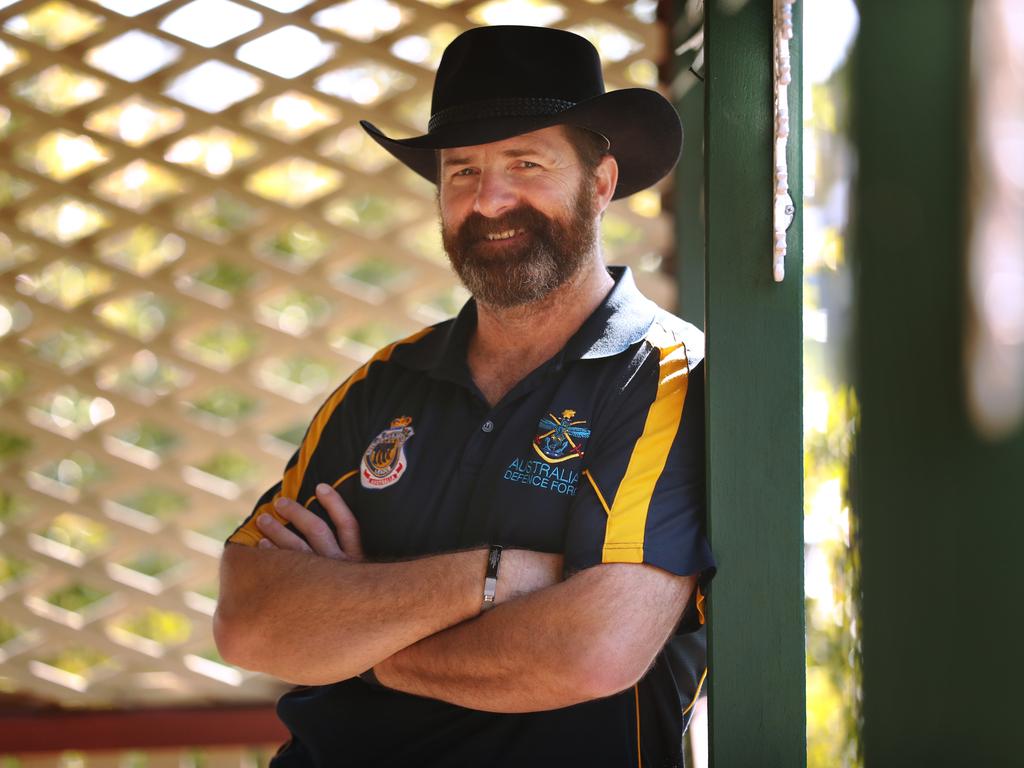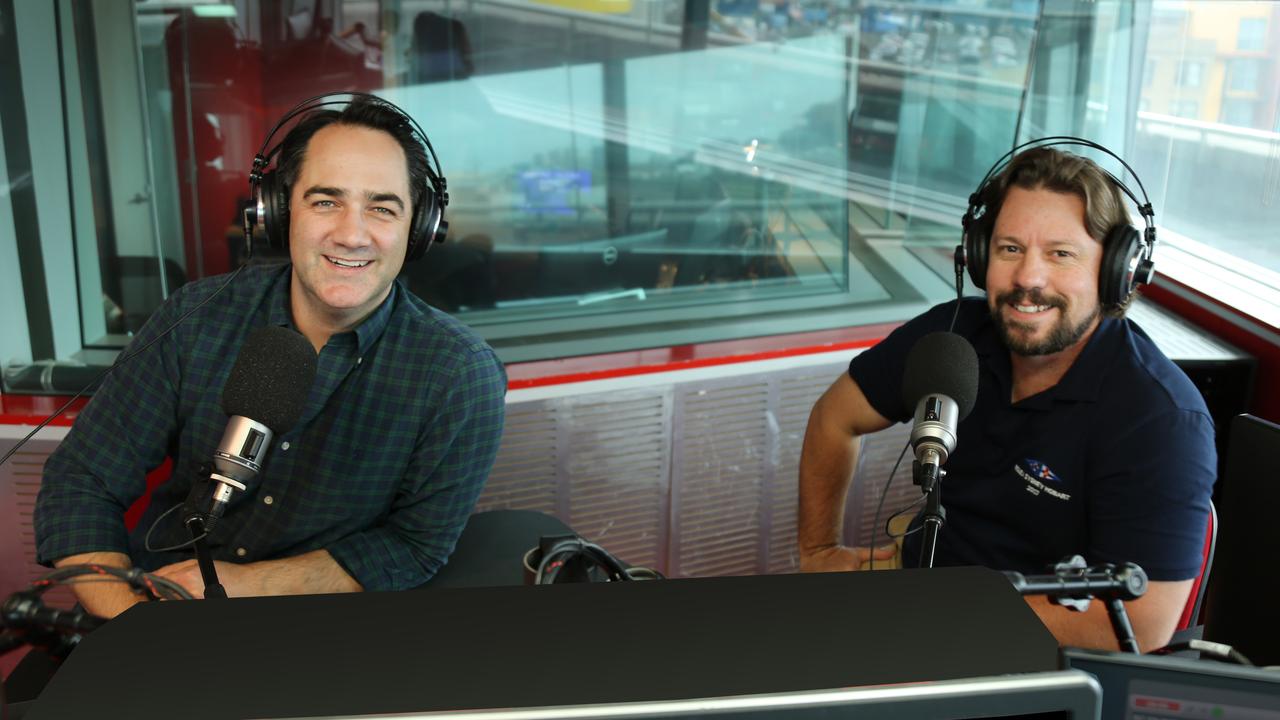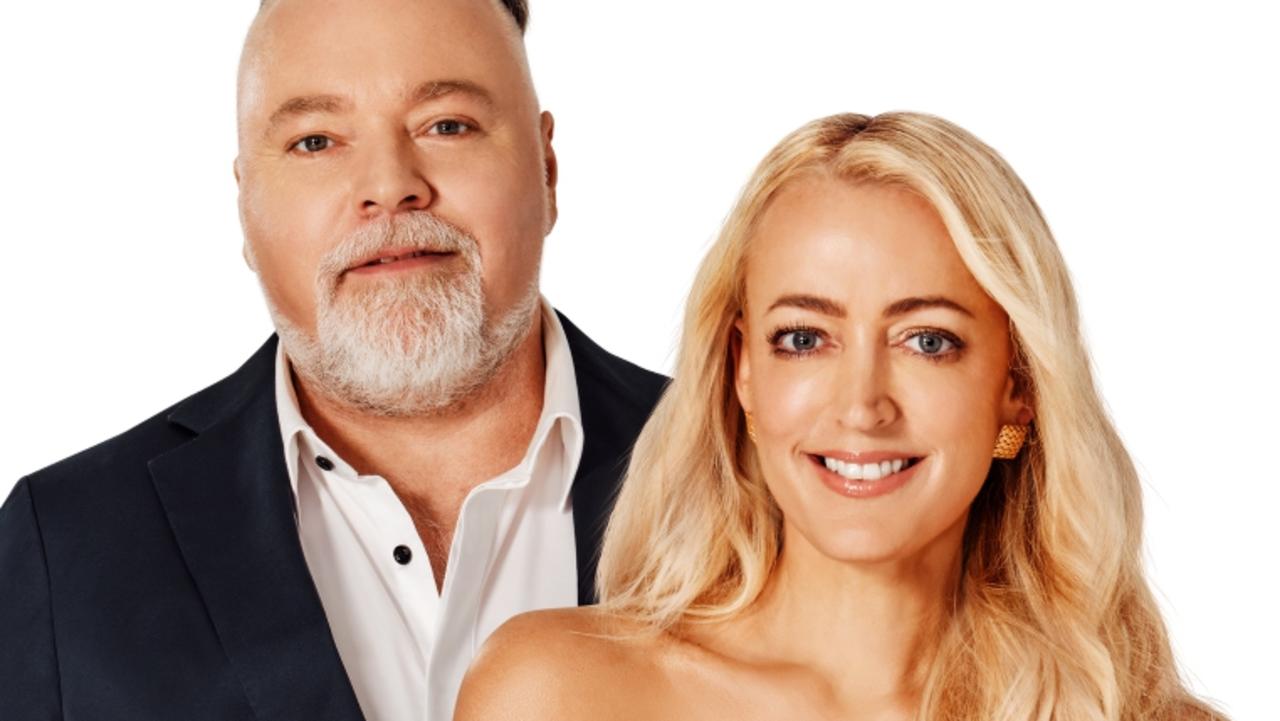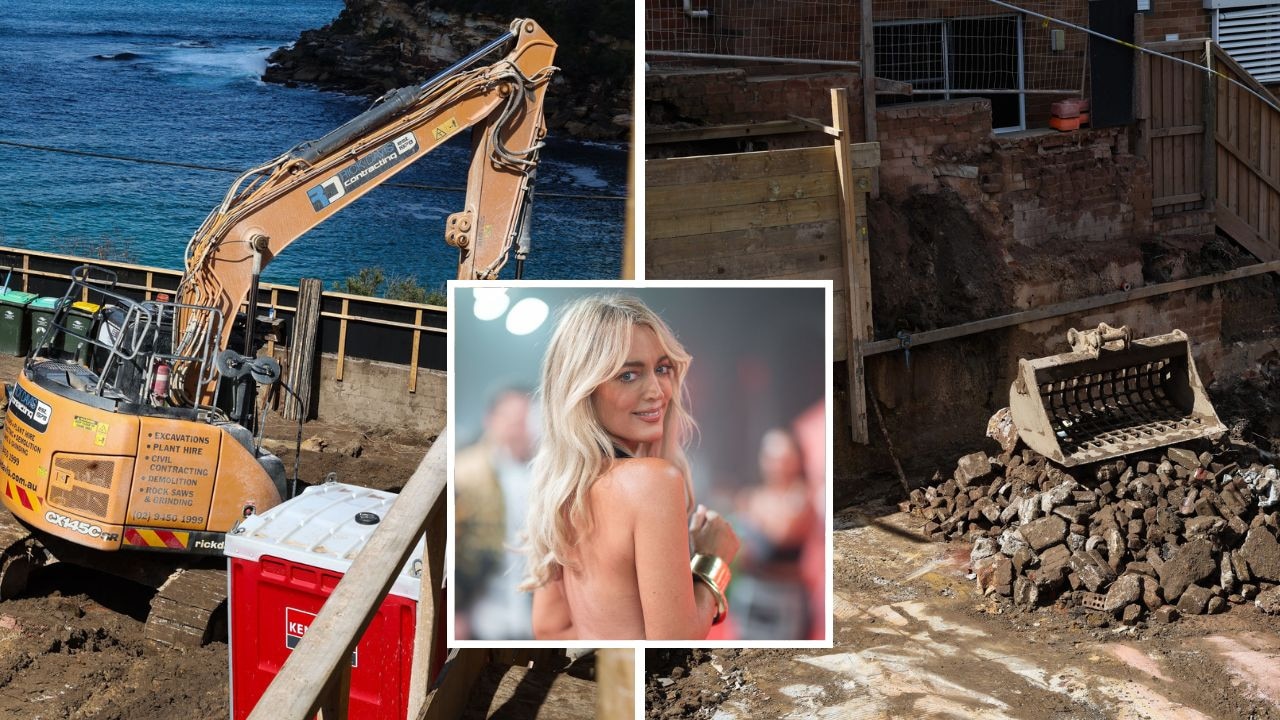Radio star moved to tears
NOVA star Wippa usually spends his days interviewing celebrities and playing pranks. But this was his most confronting interview yet.
I’M not usually overly emotional when I’m interviewing someone, but recently I’ve been moved to tears.
While I’ve done thousands of interviews for our radio show over the past 10 or so years, a podcast I’m doing — speaking with Invictus Games athletes — has got to me like nothing before.
Kevin Jacoby, this man is a hero. He served over 20 years in the military, and has been working on his recovery every week for the past decade. Here I am, sitting down with a big, proud 50-year-old Queenslander — and I’m trying to keep it together as Kev opens his
heart to tell me what it’s like to serve in Afghanistan and East Timor leaving your wife and three kids UNDER THREE at home. Kev is a proud campaigner to help people understand silent illnesses. His bravery in sharing his story continues to help others, years
after leaving the military.

Kevin told me while there is support for injuries, it’s the ones you can’t see that need long-term help.
“A physical injury, one, you can see it, two, you can do something about it. There’s physios, there’s musculoskeletal guys that look after you, there’s exercise physiologists, there’s people out there that can actually help you.
“Yes, there are people out there for the mental health side of it, but it’s a much slower and much longer process to heal from a mental health injury than it is from a physical injury.”
Kevin was just one of the people I spoke with who made me really reflect how little we know about what it’s like to for the people actually out there, serving our country.
Even in my younger years, I have always had a lot of respect and admiration for the sacrifice and the commitment made by the men and women who join our armed forces, and for the everyday people who are prepared to put up their hand to fight for the greater good of the nation.
MORE: The Invictus Games saved my life
MORE: There’s ‘more to Invictus Games than competition’
I go to the dawn service on Anzac Day, proudly wearing my grandfather Eric Smedley’s medals to represent my family. I am someone who reaps the rewards of over 100 years of service, gifted these freedoms from men and women who have made massive sacrifices.
To hear the stories of what so many have endured often makes you feel small.
That’s not the intention but you very quickly put yourself in their position and think, what would I have done in the moment? How would I have reacted? Would I have got out of that situation alive? Would I have the commitment to join in the first place?
Put simply, you’ll never know because the likelihood is that’s not you. Then who is it? Who signs up and why? I have asked myself this question many times before, which became the basis to this podcast. I wanted to meet them, I want to hear their stories because I wanted to understand and I want to thank them. They have my complete admiration.
Each competitor had a completely different story, unique to themselves, their families and their situation.
Craig McGrath talked through what it was like to enter an abandoned compound in Afghanistan and have an IED explode just metres away, riddling his body with shrapnel.
What struck me the most was the presence of mind that Craig had, moments after the explosion, to check that his three teammates were okay, to apply his tourniquet and to make sure there was no enemy fire coming his way.

Craig also talked about the notification process for the families when there has been serious injury or death in combat. The strength shown by his wife yet again blew me away. We’ve all seen in the movies a loved one fall to their knees after getting a knock at the door with the news that will change their life forever. That still happens.
I’ve got to be honest. Six months ago I didn’t really know all that much about the Invictus Games. I knew there were ex and current armed service men and women who competed across various sports. I knew that His Royal Highness, the Duke of Sussex, was the driving force behind the games but I hadn’t stopped to consider the magnitude of what these games meant to the competitors.
But it soon became clear that these games brought the athletes back to a world they knew best. An environment that was welcoming and understanding. They spoke of the friendships that were formed because of this understanding and the ability to trust and share their challenges, to quote one competitor “it just feels like home.” That is the power of the Invictus Games.
Listen to ‘Invictus Games — the soldier and the story with Wippa’ at Nova or wherever you get your podcasts.



